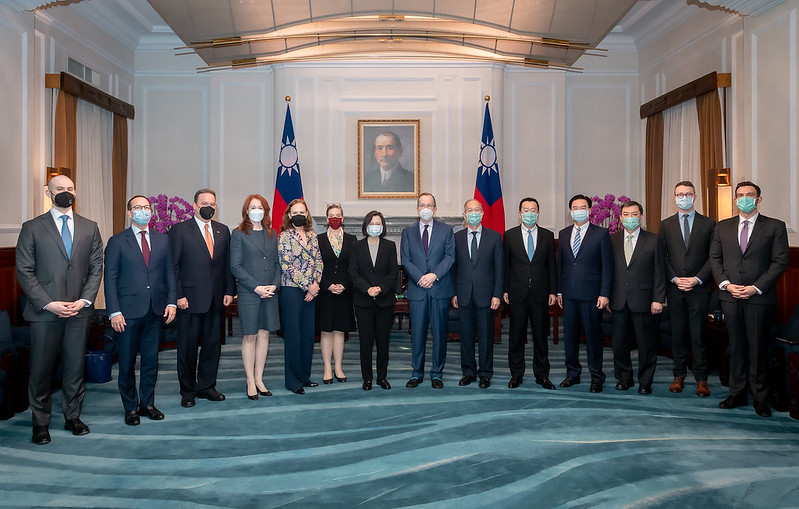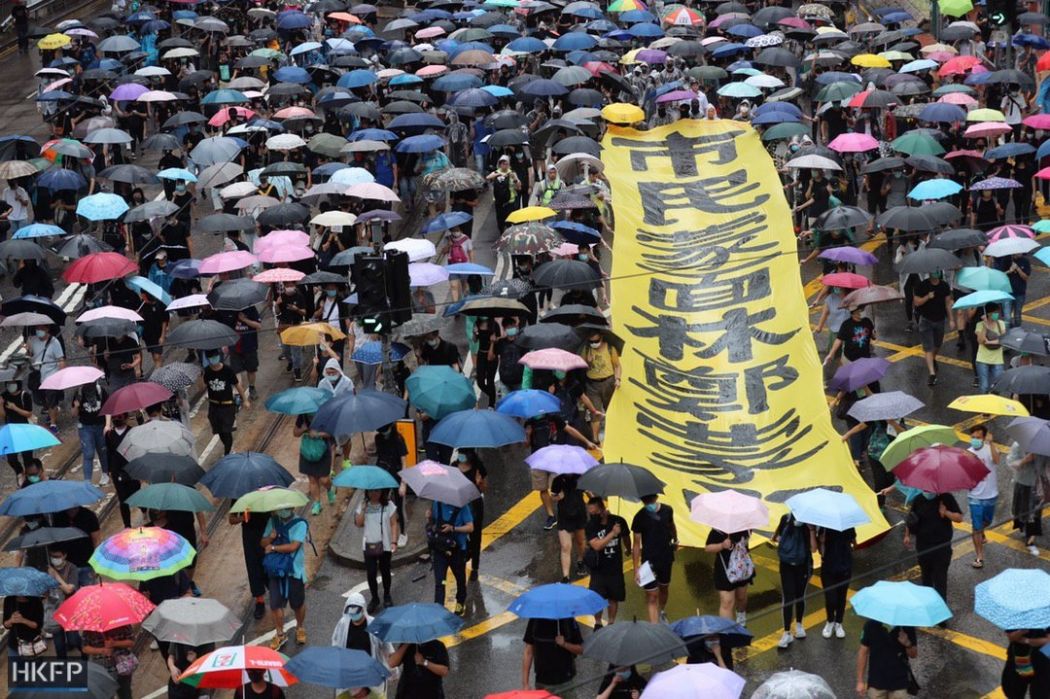By Hilton Yip
In the past three years since mass protests swept Hong Kong in 2019, Taiwan has been seen as a haven for those looking to flee the authorities or start afresh in a democratic society. With a government that had voiced support for the protests, a sympathetic civil society, and ethnic and cultural ties, it was not hard to see why. But recent developments in Taiwan may signal a marked shift in these supposedly friendly bonds.

In late April, Taiwan said it would halt a planned scheme to loosen requirements for Hongkongers to apply for permanent residency, before announcing in May that the scheme would be suspended indefinitely. Some legislators, including from the ruling Democratic Progressive Party (DPP), had claimed some Hong Kong applicants could have mainland Chinese backgrounds and sympathies and pose a security threat. The scheme would have allowed Hongkongers to apply for permanent residency after working in Taiwan for five years – they are currently only allowed to do so if they have graduated from local universities.

The June 4 Tiananmen commemoration in Taipei attracted a crowd of just a few hundred, many of whom were Hong Kong students and residents of the island. Despite Taipei being lauded as the only place in the Chinese-speaking world where this event could be held, the modest turnout reflected a lack of interest among many Taiwanese in marking what was a tragic event in China’s history. It also indicates an increasing divergence between Taiwanese and Hongkongers.
The wariness of the DPP legislators towards Hong Kong applicants was based on the suspicion that some Hongkongers could be pro-Chinese, though in reality, one could also say most mainland sympathisers and “agents” in Taiwan are actually locals. Citing the post-1997 permit system that has resulted in over a million mainland Chinese moving to Hong Kong to live, these legislators say many of these might make their way to Taiwan and exploit ways to apply for permanent residency.
This might seem somewhat paranoid but is consistent with Taiwan’s longstanding insular attitude to foreigners, exemplified by restrictive naturalisation regulations that require the vast majority of applicants to relinquish their original citizenship. This prevents many foreign residents with jobs, families and even businesses in Taiwan from becoming citizens.
Taiwan also lacks an asylum law, with a draft stuck in parliamentary gridlock for many years and not likely to be passed anytime soon.

Due to the intricacies of Taiwan’s constitution, which is officially that of the Republic of China, people from Hong Kong, as well as from Macau, are considered compatriots, granting them a status that is different from other foreigners and less restrictive in aspects like residency and banking. This was implemented without any issues by the now opposition Kuomintang (KMT), which originally came from China, during its many years in power as it tried to attract Hongkongers and members of the overseas Chinese diaspora to Taiwan.
However, the current DPP government represents a localised identity and having encouraged a rising national consciousness in Taiwan, is not keen on promoting any pan-Chinese identity. Whereas previously Hongkongers enjoyed less restrictive rules than other foreigners, they now are seen as potential threats, little different from mainland Chinese for whom tighter restrictions on residency and work apply. It is noticeable that the legislators who objected to the Hong Kong permanent residency scheme were from the DPP or the smaller pro-independence New Power Party, not the KMT.
There is also a more cold-blooded reality in that the DPP government has no practical reasons to support Hongkongers. After all, the protest movement has been defeated and many Hong Kong opposition figures have been jailed, silenced, or fled overseas. Taiwan now receives much attention from the US and the West, with the government enjoying closer ties with European nations.

President Tsai Ing-wen is in the midst of her second term, which she won in 2020 with campaign that frequently referenced scenes from the Hong Kong protests. Since then, her government has not matched supportive comments with action. For instance, even after opening a “Taiwan-Hong Kong Services and Exchanges Office” to help Hongkongers settle in Taiwan, jailed teenage Hong Kong activist Tony Chung was reported to have contacted Taiwan for help and been ignored repeatedly.
Given that the office’s main aims are to help those who “plan to study, work, invest, start a business or settle in Taiwan,” helping protesters seems to be less a priority than attracting Hongkongers with deep pockets to invest or open businesses on the island.
Meanwhile, numerous protesters who fled to Taiwan have either been languishing without recourse to official support or work and residency permits, or have gone on to other countries. Even back in 2020, Taiwan’s support for young Hong Kong protesters was lukewarm, with shelter and aid provided only by NGOs and churches and high-profile fugitives moving on to countries like the US.
It’s not hard to see that the Tsai campaign capitalised on the Hong Kong protest movement both to amplify the menace of Beijing and promote an image of Tsai as a supporter of human rights, thus gaining more support from Taiwanese voters.

In any case, the supposedly strong support of Taiwanese for Hongkongers has been overstated. Many older people, for instance, share little affinity with Hongkongers, and vice versa, with the latter having harboured patronising attitudes towards Taiwan. Judging from personal experience with people from both places, including my own relatives, many Hongkongers used to look down on Taiwan as a backward place that spoke the same language as mainland China, with messy politics and rowdy politicians (this is actually still true).
While some younger Taiwanese may still be sympathetic towards the Hong Kong protest movement, mainstream Taiwanese society has moved on while dealing with concerns such as a potential future Chinese attack, the Covid pandemic, and economic issues.
With both the Taiwan government and society losing interest in supporting Hongkongers, the reality of Taiwan as a haven for Hongkongers might soon no longer be valid at all.
Support HKFP | Policies & Ethics | Error/typo? | Contact Us | Newsletter | Transparency & Annual Report | Apps
| HKFP is an impartial platform & does not necessarily share the views of opinion writers or advertisers. HKFP presents a diversity of views & regularly invites figures across the political spectrum to write for us. Press freedom is guaranteed under the Basic Law, security law, Bill of Rights and Chinese constitution. Opinion pieces aim to point out errors or defects in the government, law or policies, or aim to suggest ideas or alterations via legal means without an intention of hatred, discontent or hostility against the authorities or other communities. |
Help safeguard press freedom & keep HKFP free for all readers by supporting our team

More HKFP OPINION:
HKFP has an impartial stance, transparent funding, and balanced coverage guided by an Ethics Code and Corrections Policy.
Support press freedom & help us surpass 1,000 monthly Patrons: 100% independent, governed by an ethics code & not-for-profit.










